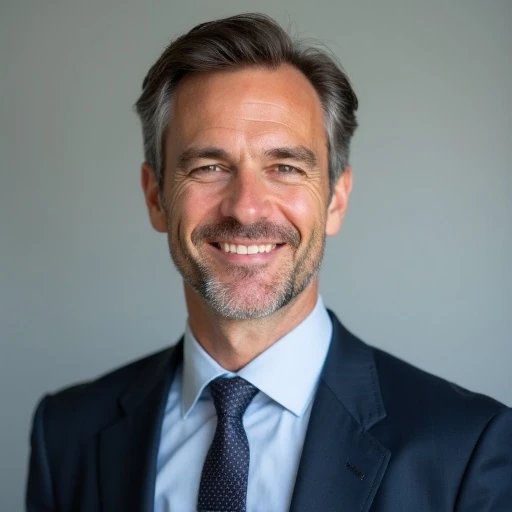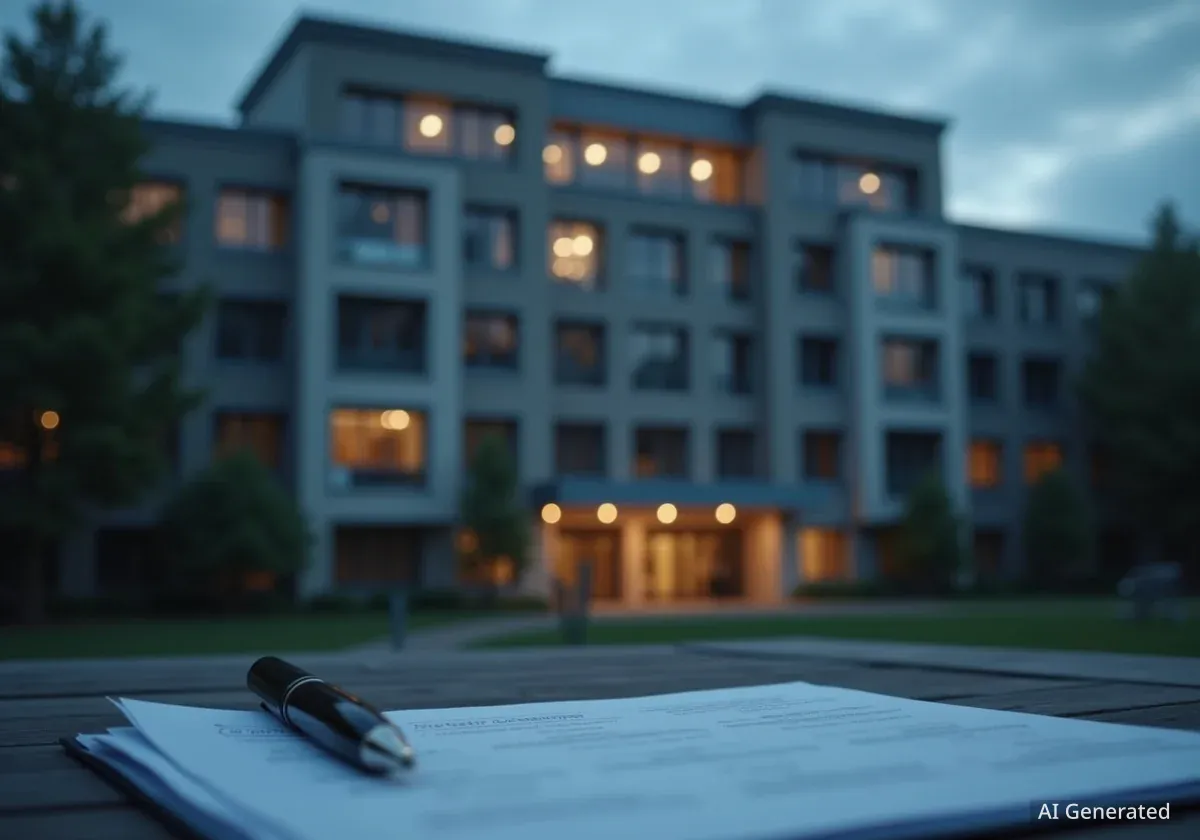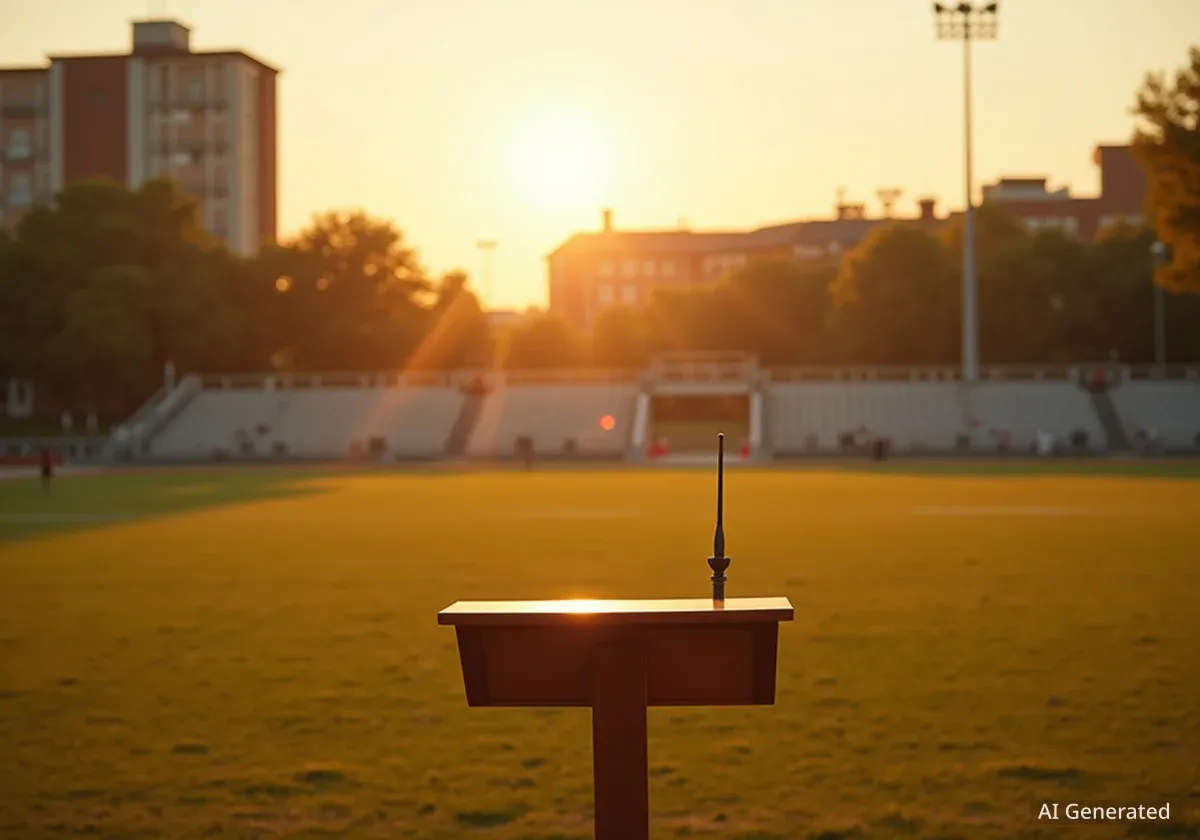Florida Atlantic University has placed three tenured professors on administrative leave as it investigates their social media posts made after the death of political activist Charlie Kirk. The faculty members, who teach in different departments, have cited their First Amendment rights in response to the university's action.
Key Takeaways
- Three FAU professors are on administrative leave: Karen Leader, Rebel Cole, and Kate Polak.
- The action follows an investigation into their social media posts regarding the death of Charlie Kirk.
- The professors argue their posts are protected by the First Amendment.
- FAU's president stated the university is following specific processes for tenured faculty.
University Investigates Faculty's Online Activity
Florida Atlantic University (FAU), a public research institution in Boca Raton, confirmed that an investigation is underway involving three of its faculty members. The inquiry centers on social media activity that occurred after the September 10 shooting death of Charlie Kirk, the 31-year-old co-founder of Turning Point USA.
The university identified the individuals on administrative leave as Karen Leader, a professor of art history; Rebel Cole, a professor of finance; and Kate Polak, who teaches English. The specific content of all posts under review has not been fully disclosed by the university.
However, one of the professors, Karen Leader, spoke about her actions on the social media platform X, formerly known as Twitter. She stated that her posts and reposts aimed to provide evidence of controversial statements Kirk had made.
"What I did is posted or reposted a lot of content that offered proof that he had said vile things," Leader explained to WPTV.
Professors Assert First Amendment Protections
All three professors maintain that their online expression is protected under the First Amendment, which guarantees freedom of speech. They argue that as private citizens speaking on matters of public concern, their speech should not be subject to discipline from their public employer.
The Involved Faculty
The investigation involves professors from diverse academic fields, including:
- Karen Leader: Art History
- Rebel Cole: Finance
- Kate Polak: English
Rebel Cole was particularly direct in his defense, taking to X to challenge the university's legal standing. He argued that established case law protects the free speech rights of faculty members.
"Any university administrator who pursues actions against faculty for exercising their free speech should be terminated for wasting university funds," Cole wrote. "Any university General Counsel who failed to advise their superiors also should be terminated. The settled case law is clear."
This position highlights a common point of tension in public higher education: balancing an institution's desire to maintain a certain standard of public discourse with the constitutional rights of its employees.
FAU Administration's Official Response
In response to the growing attention, FAU President Adam Hausner released a formal statement on the university's official X account. The statement avoided commenting on the specifics of the investigation but outlined the university's general approach.
Hausner emphasized the institution's commitment to established procedures. He noted there are "specific processes regarding tenured faculty members" that the administration is required to follow.
The president's message also focused on the broader campus climate. The university's goal, he said, is "on our academic community’s responsibility to promote civil discourse, conduct healthy debate, and treat one another with respect." This suggests the investigation may be examining whether the professors' posts violated university policies related to professional conduct or civil discourse.
Academic Freedom and Free Speech
The First Amendment generally protects public employees when they speak as private citizens on matters of public concern. However, the legal landscape can be complex. Courts often use a balancing test, weighing the employee's speech rights against the employer's interest in maintaining an efficient and orderly workplace. For universities, this is further complicated by principles of academic freedom, which traditionally provide broad protections for faculty speech related to their teaching and research.
Context of the Preceding Events
The controversy at FAU unfolded in the wake of Charlie Kirk's death. Kirk, a prominent conservative activist, was shot and killed by a 22-year-old man in Utah on September 10. His death prompted widespread reaction across the political spectrum and on social media.
Mourners gathered for a large-scale memorial service for the father of two in Glendale, Arizona. The event drew an estimated 93,000 people to the State Farm Stadium and the Desert Diamond Arena, requiring a significant security presence from federal and local law enforcement.
The service attracted several high-profile political figures, including President Donald Trump, Vice President JD Vance, and Secretary of State Marco Rubio. The program also featured performances by several popular Christian musicians, reflecting Kirk's influence in evangelical circles.
The intense public focus on Kirk's life and death created a highly charged environment online, where the FAU professors' posts were made. The university's investigation now places it at the center of a national debate over the boundaries of free speech for academics in a polarized society.





